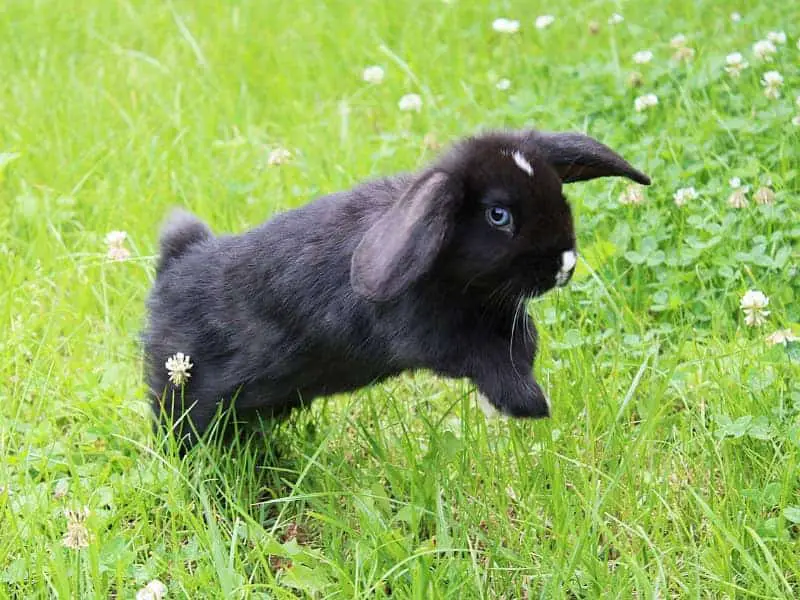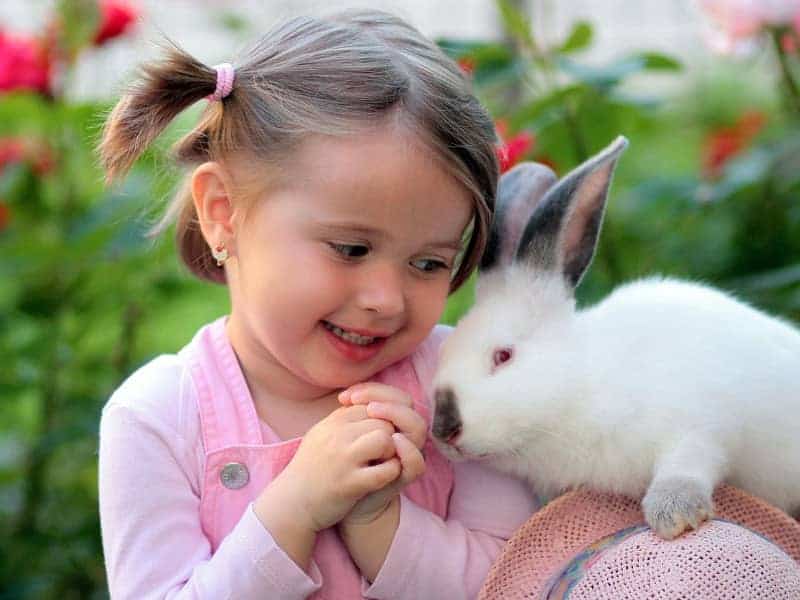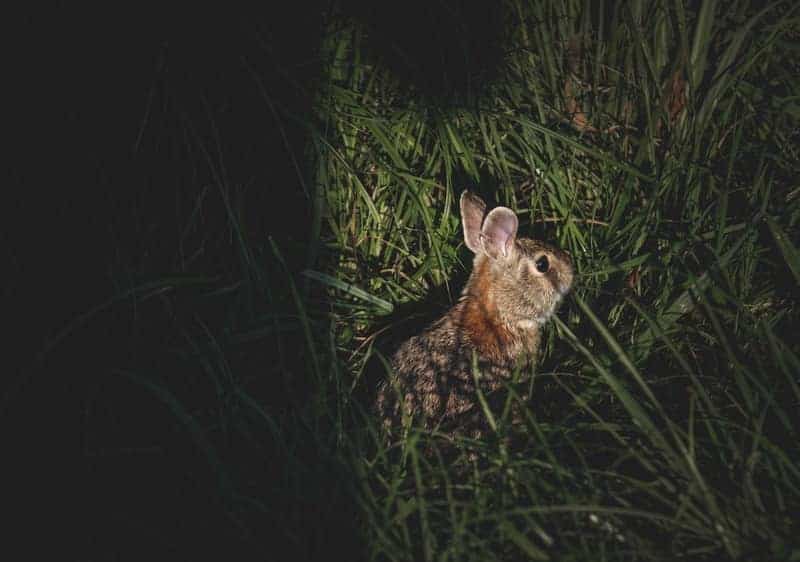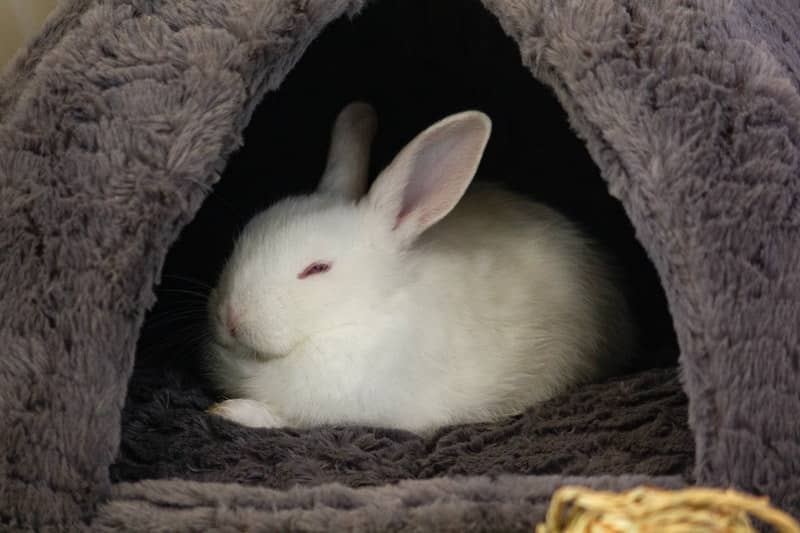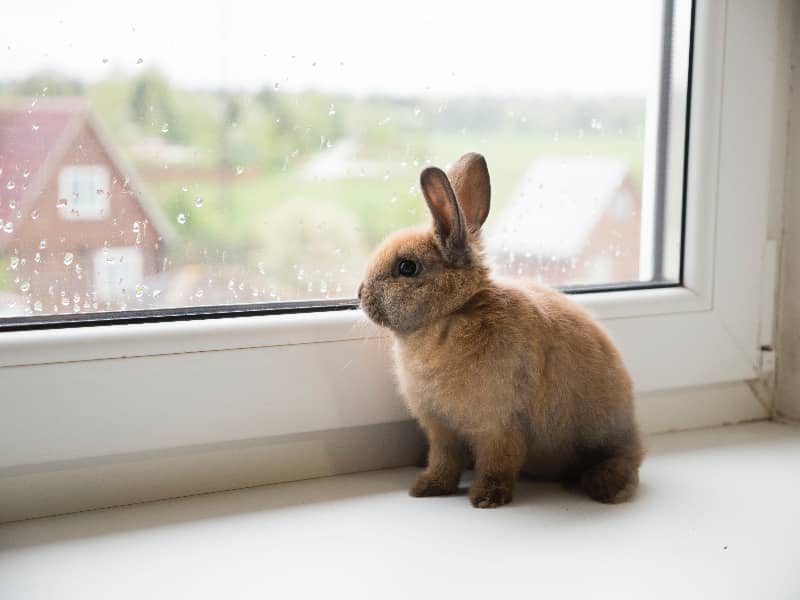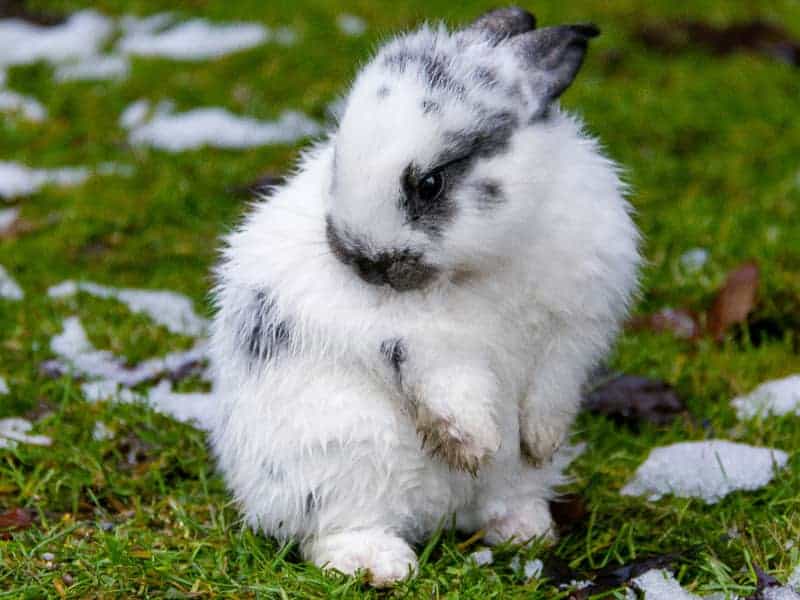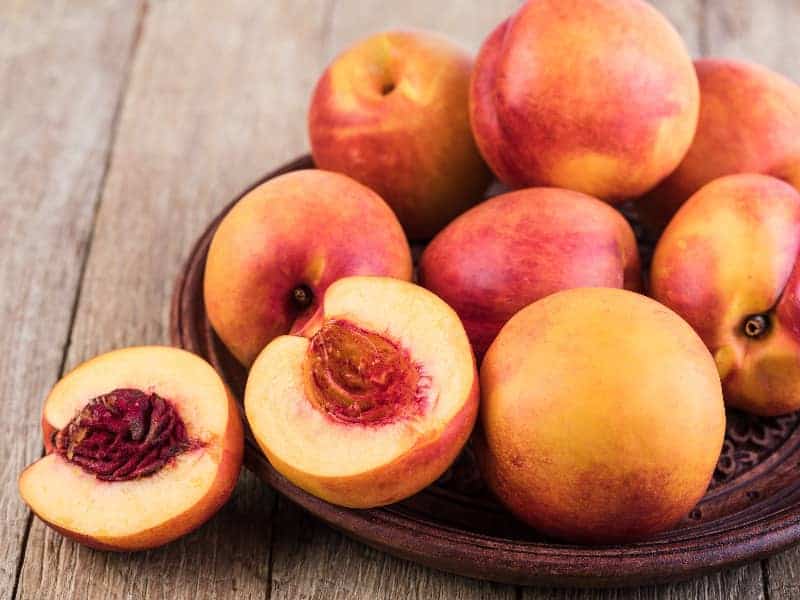
Are rabbits allowed to eat nectarines?
One morning, you are standing at your kitchen table, biting into a juicy, sweet nectarine with relish. At that moment, your rabbit sneaks along your feet, lifts his little head and looks at you with his big eyes. Have you ever wondered if your furry friend could also benefit from this sweet treat? This article sheds light on the question: Can rabbits eat nectarines?
A look at the nectarine
Before we turn to the question of whether rabbits can eat nectarines, let's take a look at the nectarine itself. Nectarines are stone fruits, closely related to peaches. They are known for their sweet taste and juicy texture. They contain numerous vitamins and minerals such as vitamin C, potassium and fiber, which are highly valued in the human diet.
Rabbits, nectarines and other fruits
It is important to note that rabbits are generally herbivores. Their main diet consists of hay, vegetables and specially formulated rabbit food. Fruits tend to be treats that should be given in moderation. The high sugar content in most fruits, including nectarines, can lead to health problems in rabbits, such as digestive problems or obesity, if consumed in excess.
The thing with sugar
Nectarines contain a relatively high amount of sugar. For us humans, this can be a source of quick energy, but for rabbits? In rabbits, too much sugar can disrupt the balance of bacteria in the gut. This in turn can lead to severe digestive problems, such as diarrhea or bloating, which can be extremely dangerous for rabbits.
The potassium factor
Another point to consider when assessing nectarines as a suitable snack for your rabbit is their potassium content. Potassium is an essential mineral for many bodily functions, including the regulation of blood pressure and muscle contraction. While it is beneficial for us humans to eat a snack with a high potassium content, the situation is a little more complicated for rabbits.
Can dwarf rabbits eat nectarines?
Dwarf rabbits are a popular pet choice and differ in some respects from their larger relatives. Due to their smaller size, they have a faster metabolism and tend to be more susceptible to the negative effects of too much sugar. Although they might love the sweet flesh of a nectarine, it would probably be better to keep this particular treat to a minimum or avoid it altogether.
Fruit pits: a risk factor
When we talk about nectarines, we must not forget that they have a pit in the middle. For us humans this is not a problem, we simply eat around it. But what about our little friends? Rabbits can wear down their teeth by chewing on hard objects, such as fruit stones. However, there is a significant risk of injury here. Fruit stones can split and create sharp edges that can injure your rabbit's mouth.
Vitamin C: necessary or not?
Nectarines contain a good amount of vitamin C, which is essential for humans. But what about rabbits? Unlike humans, rabbits can produce their own vitamin C. This means that they don't necessarily need to get it from their food. Even though vitamin C is a healthy nutrient, it is not necessary to give your rabbit nectarines for the purpose of vitamin C supplementation.
The role of dietary fiber
Dietary fiber plays a crucial role in the diet of rabbits. It helps to keep the digestive system going and prevents problems such as constipation. Nectarines do contain fiber, but the amount is rather small compared to hay, the main component of a rabbit's diet. So if you're thinking of giving your rabbit nectarines for their fiber content, keep in mind that there are more effective ways to provide your rabbit with fiber.
Allergic reactions and individual differences
While we talk about the potential benefits and risks of nectarines in a rabbit's diet, it's important to emphasize that each rabbit is an individual. Like humans, rabbits can react differently to certain foods. Some may have an allergy or intolerance to nectarines or other fruits. It is therefore always advisable to exercise caution when introducing new foods into your rabbit's diet.
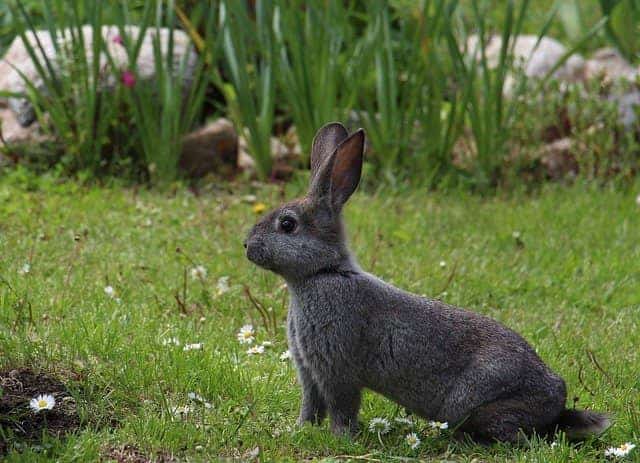
Portion size and feeding frequency
If you choose to give your rabbit the occasional nectarine, it's important to consider portion size and feeding frequency. As mentioned above, nectarines contain a lot of sugar, and too much sugar consumption can lead to health problems in rabbits. Therefore, the amount of nectarines you give your rabbit should be very small. A piece the size of your thumbnail should be enough.
The frequency with which you feed your rabbit nectarines should also be limited. Once a week is more than enough. It's better to diversify your rabbit's diet with a variety of healthy vegetables and plenty of hay, rather than relying on sweet fruits.
Watch your rabbit
When you give your rabbit a nectarine for the first time, observe it closely. How does it react to the new fruit? Does it like the taste? More importantly, how does his body react? Does it show signs of digestive discomfort or discomfort? If so, it might be a good idea to take nectarines off the menu.
Not every rabbit is the same
It is also important to remember that not all rabbits are the same. What works perfectly for one rabbit may not work for another. While one rabbit might love nectarines and show no ill effects, another rabbit might not tolerate them. Get to know your rabbit and adjust its diet accordingly.
Fresh nectarines versus canned nectarines
If you decide to feed your rabbit nectarines, you should always choose fresh nectarines and avoid canned nectarines. Canned nectarines often contain added sugar and preservatives that are not healthy for your rabbit. In addition, the texture of canned nectarines is softer, making them less stimulating for your rabbit to chew.
The right preparation is crucial
If you decide to give your rabbit a nectarine, the correct preparation of the fruit is crucial. Nectarines should always be washed well to remove any pesticide residue. The stone in the middle must also be removed to avoid any risk of injury. Cut the nectarine into small, bite-sized pieces to make it easier for your rabbit to eat and digest.
Food diversity is important
It is important to remember that a balanced diet for rabbits consists of a variety of foods. While nectarines may be fine as an occasional treat, they should not form a significant part of the diet. Hay should always make up the majority of your rabbit's diet, supplemented by fresh vegetables, rabbit food and occasional treats.
What happens if your rabbit eats a whole nectarine?
If your rabbit accidentally eats a whole nectarine, it is important to observe it closely. Look out for signs of discomfort or digestive problems. If such symptoms occur, you should consult a vet. In most cases, however, eating a whole nectarine once should not cause serious problems, but it should be prevented if possible.
Conclusion: Are rabbits allowed to eat nectarines?
In conclusion, rabbits can technically eat nectarines, but there are some important caveats. Due to the high sugar content of nectarines, they should only be given in small amounts and rarely as a treat. It's also important to consider your rabbit's individual preferences and tolerances, as not all rabbits react the same way to nectarines or other fruits.
As always, when feeding your rabbit, it is important to ensure a balanced diet and be careful when introducing new foods.
Author

-
Garden animal - A life with nature
Welcome to my animal blog! My name is Dirk and I am happy to take you on my journey through the fascinating world of animals and gardening.
Born 54 years ago, I have had an insatiable curiosity for the animal world around me since childhood. Although I have moved professionally in other industries, my true passion has always been animals and nature. It is remarkable how a small garden has become such an important part of my life.
Many of my fondest memories are associated with the animals that share our home. Whether it's the curious squirrels that scurry across the trees in the morning, the colorful variety of birds that visit our feeders, or the busy bees and butterflies that pollinate our flowers, every moment with them is invaluable to me.
This blog is my contribution to share my experiences, discoveries and insights with like-minded people. Here I will share stories of unforgettable encounters with animals, give tips on gardening and creating wildlife-friendly habitats, and take you on my journeys through nature.
Thank you so much for being here!
Cordial,
Dirk aka garden animal
Last posts
- 27. February 2024PetsVeganes Hundefutter – Grün und Gesund?
- 18. January 2024ChickensOregano für Hühner
- November 27, 2023HamsterDiurnal hamsters
- November 24, 2023HamsterHamster hammock

